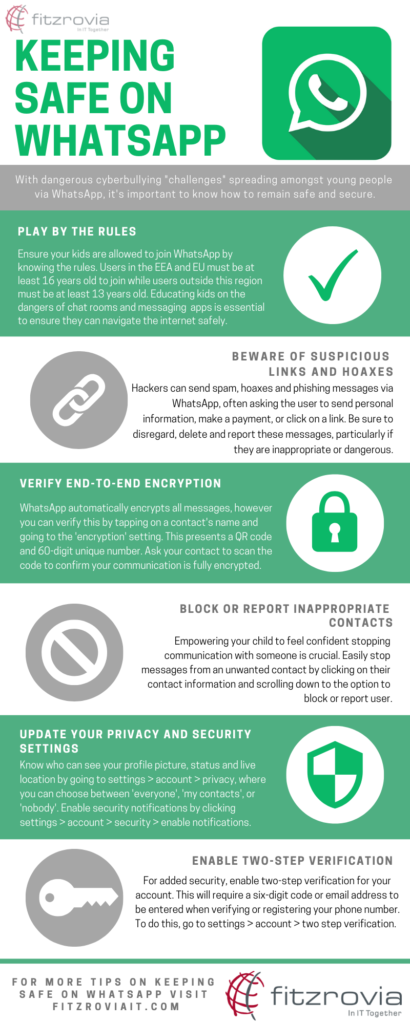Spring Clean your PC
As we are in the first official week of Spring, what better time to suggest some quick and easy ways to spring clean your PC! It is fair to say most...
2 min read
FitzroviaMarketing : Feb 28, 2019 10:17:15 AM
A disturbing cyberbullying ‘game’ called the Momo challenge is spreading around the world via WhatsApp and online platforms, leaving young people vulnerable to its violent messages. As chat rooms and messaging apps become increasingly available to young people – and become targeted platforms for hackers – we break down how to stay safe on WhatsApp.
To update your settings, go to settings > account > privacy
To enable this setting, click settings > account > two-step verification > enable
To block or report a contact, click on contact name > report/block
To do this, click settings > account > security > enable security notifications
To enable this, click settings > privacy > screen lock > require touch ID
For more information on how you can keep safe on WhatsApp, visit the official WhatsApp security page.

As we are in the first official week of Spring, what better time to suggest some quick and easy ways to spring clean your PC! It is fair to say most...

Every year businesses eagerly anticipate the Microsoft Ignite conference, and the application and software development announcements that accompany...
 Read More
Read More